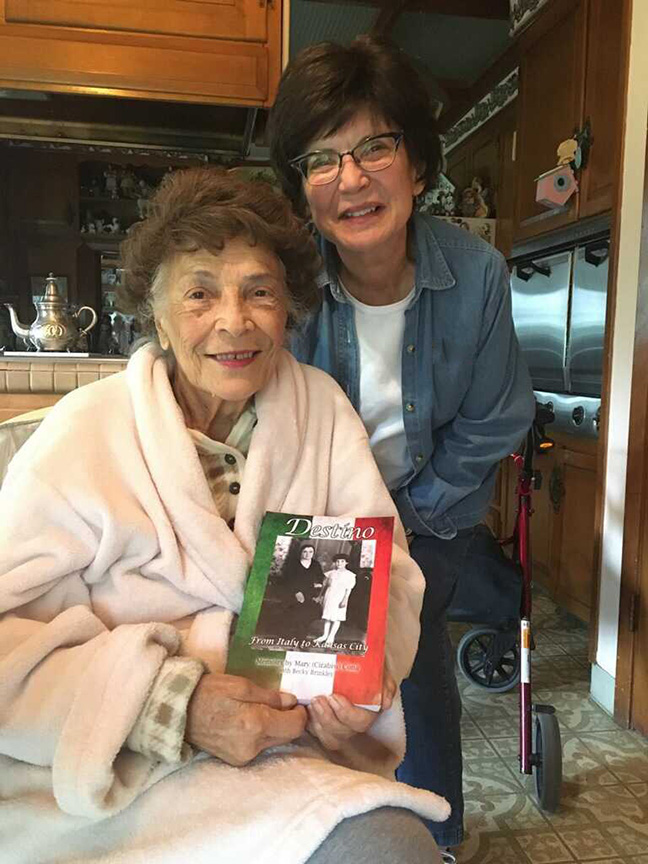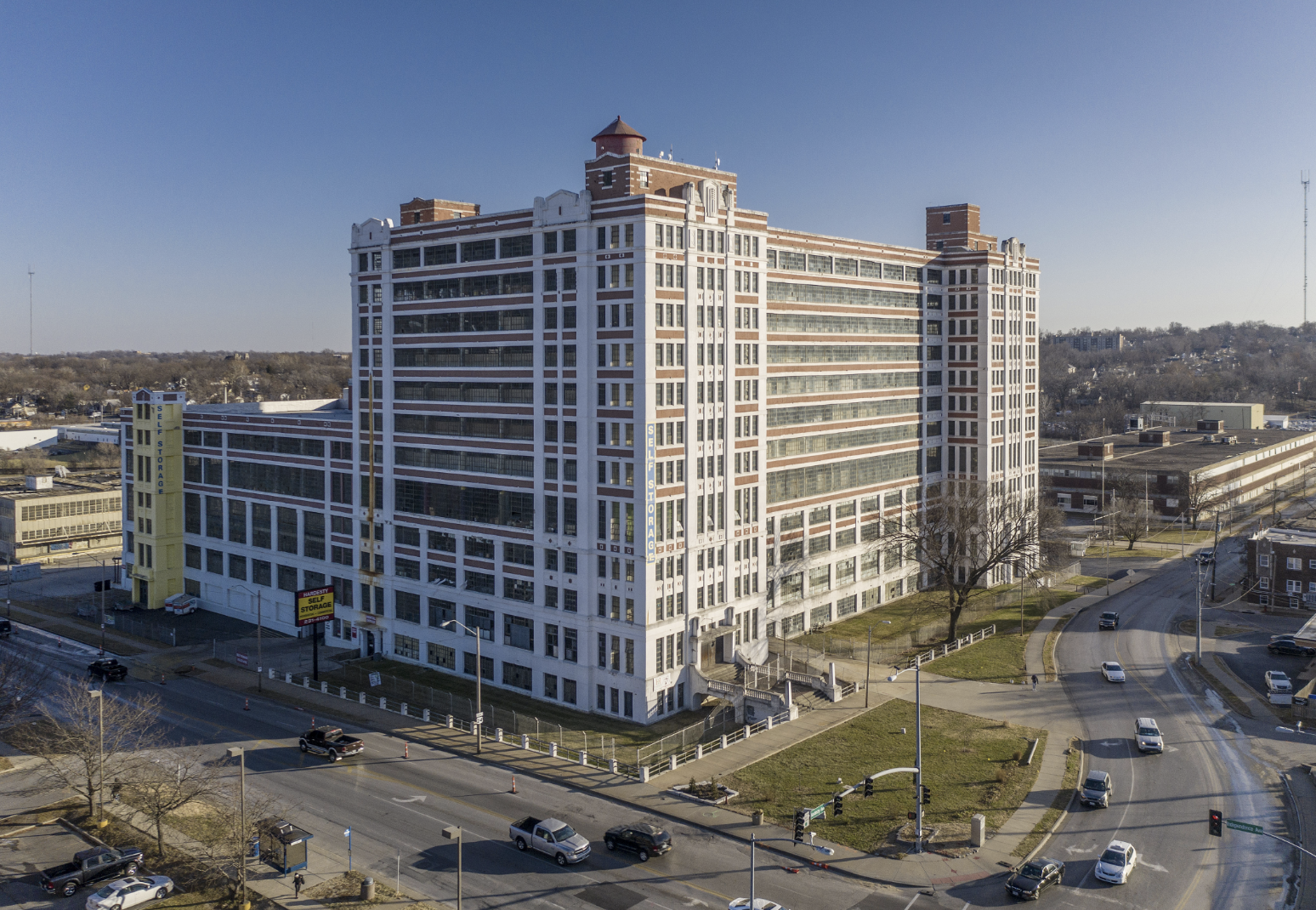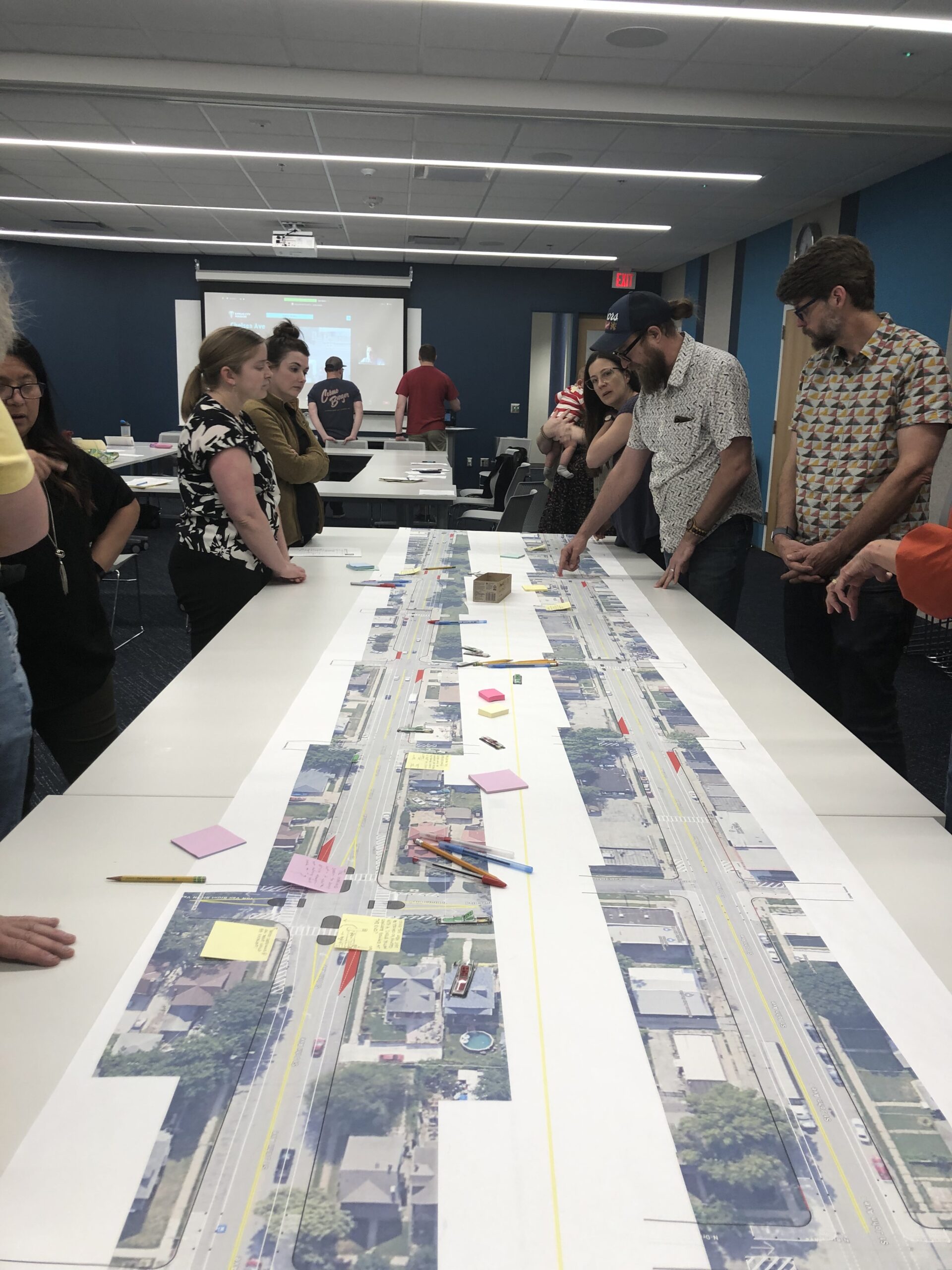
Abby Hoover
Managing Editor
On the surface, Mary Cona was just another Italian girl from the North End. She was a devout Catholic, a supportive wife, a loving mother. However, diving into the details of her remarkable life through her eyes in her autobiography, “Destino: From Italy to Kansas City,” Mary was shaped through many hardships into an artist, entrepreneur, philanthropist and world traveler.
At the age of 94, her family convinced her to record her memories of growing up as a first generation immigrant born to Sicilian Mariano and Anna Cirabisi immigrants in Kansas City’s North End, known today as Columbus Park. Assisted by Becky Brinkley and her daughter JoAnna Cooper, she recalled the trials, blessings, and struggles against poverty and prejudice she faced.
Raised by her widowed mother who was largely without support from family, Mary was a sick child, battling typhoid fever at the age of 10 and she was sent to the Leed’s Sanitorium for treatment for tuberculosis at age 14 in 1941. Unlike many of her peers, she was eventually well enough to leave Leeds cured of tuberculosis at age 17. Determined to make her own way, Mary graduated from Manuel High School in 1946.
“Destino,” which means destiny in Italian, illustrates to its readers that the Cirabisi women were ahead of their time in many ways. To provide for her daughter, Mary’s mother Anna did what she could to make ends meet. With less than a high school education, she built multiple businesses and streams of income including a taxi service, a laundry service, and renting rooms in the three properties she acquired to provide income for them. One in Columbus Park, one at 39th and Paseo, and the last at 330 Askew Ave., which was built by lumber baron Robert A. Long.
Mary’s mother taught her from a young age that education meant everything. She enrolled in the Kansas City Art Institute where she finally had the freedom to express herself outside the constraints of the old world ideas in the neighborhood where she grew up. Here, Mary had her first experience with segregation. When the school took a vote on whether to admit Black students, Mary, having voted yes, befriended them despite the obvious effort to keep them separate.
“She instilled in me the love of all mankind,” Mary said of her mother. “When I was a child, Mother told me over and over again, ‘When God made the garden, he didn’t make all the flowers white. He made them all colors.’ Her view that God made them that way on purpose and we should appreciate all of them shaped my belief about the races.”
Mary graduated from the Art Institute in 1951 with a degree in Fashion Design and Illustration, and went on to open her own wedding dress shop. Her talents were sought after in the Kansas City design scene, and she was asked by former R.A. Long Museum (now Kansas City Museum) Director Ganzer to repair and curate the display of the rich Victorian gowns and the thousands of dolls from all over the world in their collection.
In 1952, Mary Cirabisi married Carl Cona. Carl was one of the first Italian-Americans hired by the Black & Veatch engineering firm. Unsurprisingly, he experienced discrimination from his co-workers. When Carl and Mary were looking to buy a house in the suburbs, they had difficulty.
“What we didn’t know at the time was that J.C. Nichols, the famous and influential real estate developer of the Country Club Plaza, inserted and enforced restrictive covenants in his residential real estate properties that prohibited Italians, Jews, Blacks and other minorities from purchasing real estate in or living in his developments,” Mary wrote.
While not first encounter with racism, this one stuck as a clear example of systemic racism affecting her family directly.
Despite Mary’s poor health early in life, they were blessed with three children – JoAnna in 1953, Carla in 1960, and Mark in 1963.
“The experience when you first see your own flesh and blood as a tiny baby placed into your arms is indescribable,” Mary wrote of JoAnna’s birth. “This helpless little body, perfectly formed – a miracle that only God in his infinite love can give.”
Just like her mother and grandmother before her, Mary’s husband died, leaving her a widow with children in 1977 at age 50. She turned to community service, helping to organize Kansas City’s first Ethnic Festival.
“Besides my children and my art, I consider the Kansas City Ethnic Festival my greatest legacy to the community,” Mary wrote. “Over the years, it has enriched countless people’s understanding that America is great because it is a melting pot of people from all over the world and their dreams of never-ending advancement.”
Mary is remembered for her philanthropy in Kansas City, donating her artwork to auction for cancer research, restoring the Our Lady of the Audience statue at Holy Rosary Catholic church – which was originally brought over from Sicily by her mother’s family – and hosting many charity fashion shows and events.
Mary was pulled back to Italy in the hopes of learning more about her family’s roots prior to her father’s immigration in 1913 and her mother’s in 1922. She traveled to Italy six times in eight years, where she got to meet her father’s cousin who was supposed to board the ship to America with him.
“I encourage everyone to travel and explore the many wonders God has provided on this earth,” Mary wrote. “It teaches us the value of all life.”
On one trip she was guided by an Italian, Franco Follina, who she became close friends with and eventually married. Devastatingly, he also died of cancer just over a year into their marriage.
Mary concludes the book by sharing her secret to a long life, followed by a poem entitled “Loneliness” that expresses the feeling she had many times throughout her life with each loss, and a tribute to her mother, Anna Mulé Cirabisi.
In February, Mary Cona celebrated her 94th birthday. On May 12, she held the first published copy of her autobiography. With ailments including diabetes, arthritis, breast cancer, and age, she departed this earth on June 6.
Mary leaves a legacy of compassion, an expansive collection of her artwork and handmade dolls, thoughtful letters written to her children, and her life story preserved for those who will follow in her footsteps. Her autobiography, “Destino: From Italy to Kansas City,” written by Mary Cirabisi is available on Amazon.com.


















